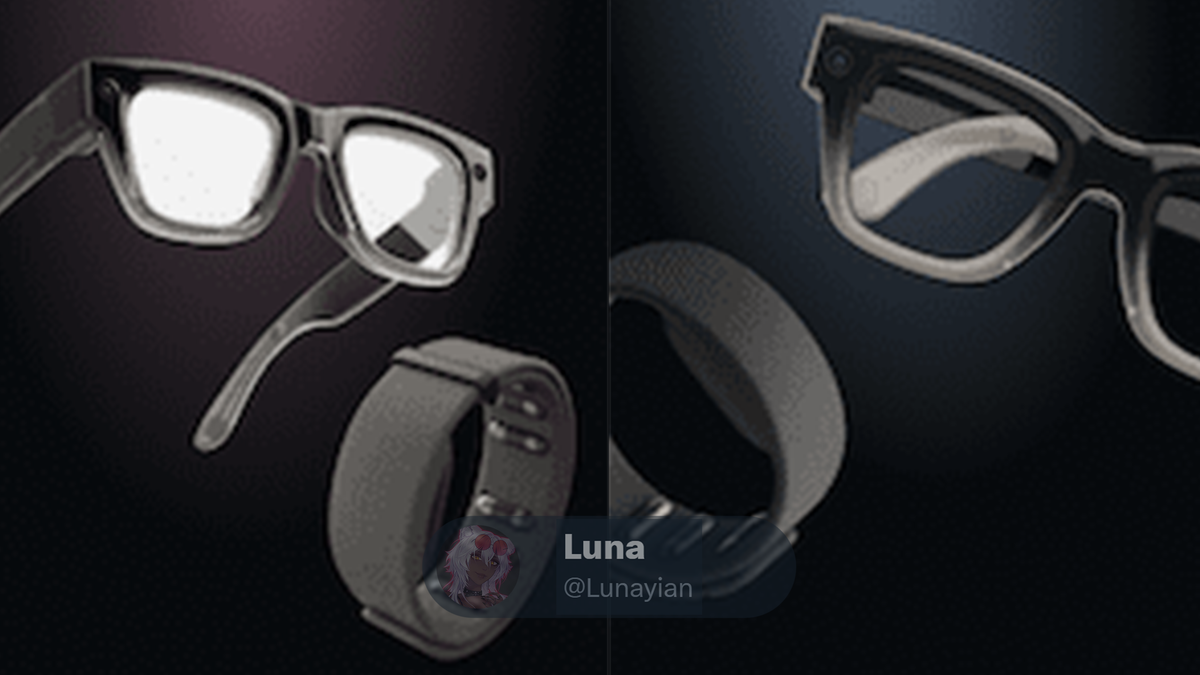Mark Zuckerberg argues that in the future people without AI-enabled smart glasses will “have a rather significant cognitive disadvantage.”
Zuckerberg made the claims during this week’s Meta 2025 revenue call as part of his response to a Wall Street analyst’s question. Analysts asked Zuckerberg to update the pace of Meta’s grand goal of building smart glasses as the “next computing platform” and whether they saw it eventually swap for a smartphone.
Here is Zuckerberg’s complete response:
“This product category is clearly going very well. And I think it’s good for a lot of things. It’s stylish eyewear, so people like to wear them as glasses. It has a lot of interesting features. And their use of meta AI continues to grow.
I continue to believe that glasses will be the ideal form factor for AI. This is because you can have AI see what you see all day long, hear what you hear, and talk about it. Once you get a display there, whether it’s a wide holographic field of view like the one shown in Orion, or a small display that might be suitable for displaying some information. It also unlocks many values that can interact with AI assistants throughout the day in this multimodal way. You can see the content around you. It can generate a UI for you, show you information and help.
Personally, I think I wear contact lenses. If your vision is not corrected, you feel you are at a cognitive disadvantage that passes through the world. And in the future, if you don’t have glasses that have some way of interacting with AI or any way of interacting with AI, you probably will be a rather important cognitive disadvantage compared to other people you work with or compete with.
So I think this is a pretty basic form factor. It comes in many different versions. Now we’re building what we think is stylish, but we’re not focusing on display. I think there’s an entire set of different things to explore on the display.
This is something we’ve maximized in real life labs over the last five to ten years, and we’re basically doing research into all these different things. What’s great about glasses is that they’ll be an ideal way to blend the physical and digital worlds. Therefore, I think the overall metaverse vision will become extremely important. AI will also accelerate that.
If you asked me five years ago, I think most people would get a hologram first, whether there was a hologram that produced an immersive experience or a total scale. And I think we’ll have a really strong AI first. But we’ve invested in this, so I think we’re a few years ahead of building glasses. And I think it’s something we’re excited to continue investing so much, as I think it will be a really important part of the future. ”
The response comes days after Esilol Luxottica, a partner in Meta, the French-Italian eyewear giant that owns the Ray-Ban brand, revealed that this year’s smart glasses sales have more than three times as compared to the same time last year, and more than three times as compared to 200% growth. The CEO told investors that glasses work “exceptionally well” in the market.
Meta initially expected the Ray-Ban Meta to be the last smart glasses without a display, but is now working with Essilorluxottica on a variety of options from across the portfolio. The limited edition of the new Oakley Meta HSTN Glass has already begun shipping, and the regular edition should be available in the coming weeks. Last year, Meta and Essilorluxottica signed an agreement to expand their partnership over the next decade to develop “multi-generation smart eyewear products.” And last month, Meta invested 3 billion euros in Essilorluxottica, acquiring a 3% stake in the company.
Ray-Ban Meta has more than tripled sales this year
Ray-Ban Metaglass sales so far this year have been more than tripled compared to the same time last year, compared to over 200% growth.
Of course, as Zuckerberg refers, Meta is also developing luxury smart glasses with displays.
The first of these will be released later this year, according to The Verge, Information, Financial Times, Mark Gurman of Bloomberg and Leaks.
Metaceleste has a small head-up display (HUD) in your right eye. The leak suggests that this HUD shows time, weather, notifications, navigation direction per turn, captions and translations of real-world speeches, and meta-AI responses as text instead of audio.
It reportedly has a price north of $1,000, and Celeste has a box of Meta’s developing sem wristbands for finger gesture control.
Metahad Glasses Name, Design & EMG Wristband Gesture Leak
The name, design and key finger gestures of Meta’s smart glasses with HUD and neural wristbands, which are expected to be released in October, are leaking.

Celeste has a display, but it only has one eye, has no particularly wide field of view and no location tracking. Therefore, virtual objects and interfaces cannot be fixed to the real world.
Meta has been working on true AR glasses for almost 10 years, showing off Orion, a fully integrated AR glasses prototype at the Connect 2024 conference.
However, the company has admitted that Orion itself will not become a product. This is because it doesn’t take time immediately, as each unit needs to cost over $10,000 to sell, as it still can’t be manufactured at an affordable price and doesn’t take much time right away.
So Meta is building another AR glasses product codenamed Artemis. The company uses Glass Lenses revealed to Verge’s Alex Heath, and uses the same materials as Snap Spectacles, previous AR devices such as Hololens and Magic Leap. This means that Meta’s Artemis almost certainly doesn’t have a broad perspective on Orion’s signature.
Meta’s prototype AR glasses have a prominent view
Meta showed off the true AR glasses from the codename Orion and the codenamed prototype.

Meta Connect 2025 will be held from September 17th. Meta has announced Celeste and is hoping to open pre-orders for delivery in October.
In April, Markgerman reported that some meta employees were working to ship HUD glasses on time over the weekend. In just under two months, we need to know if these efforts were successful.







